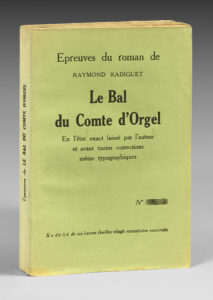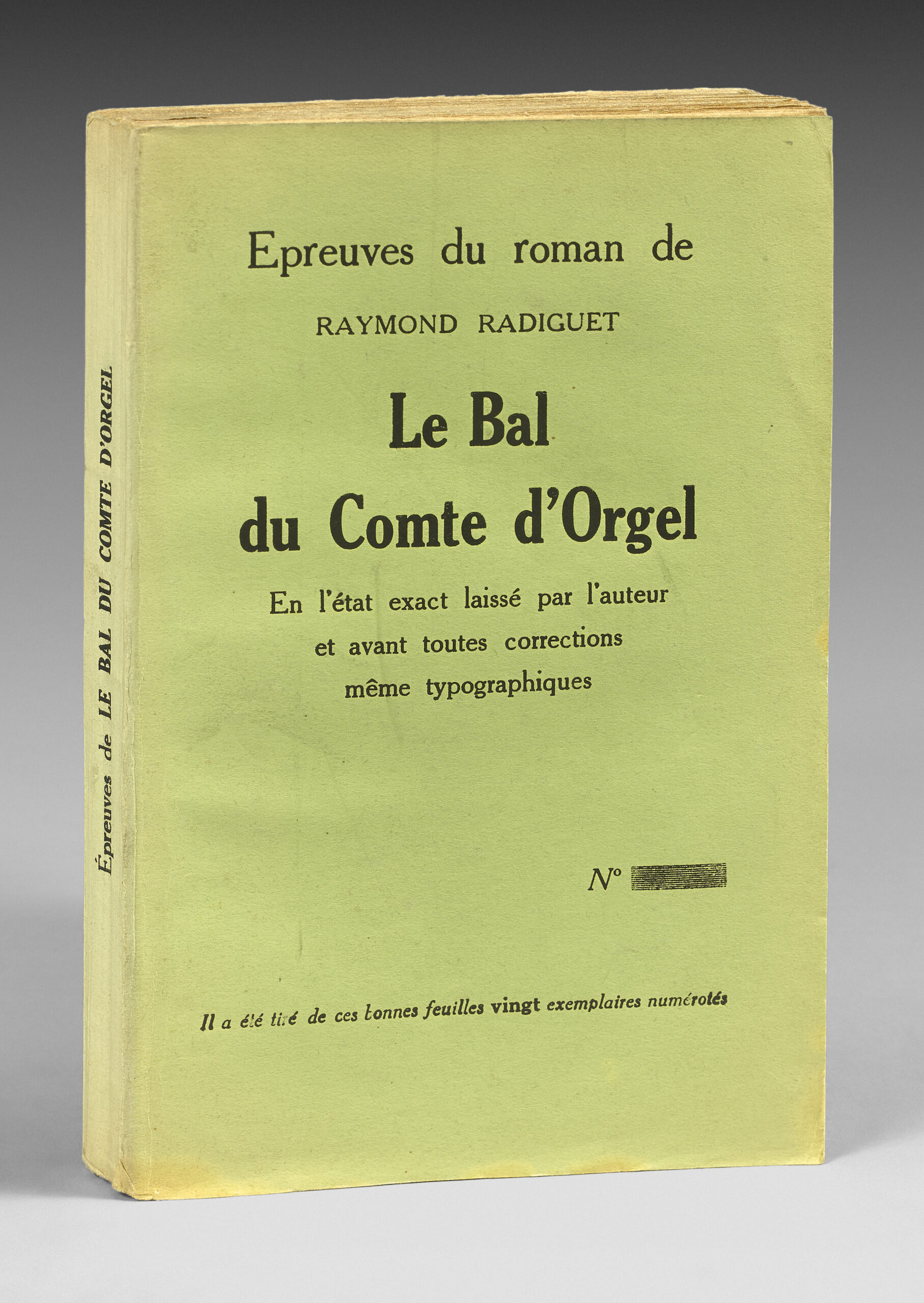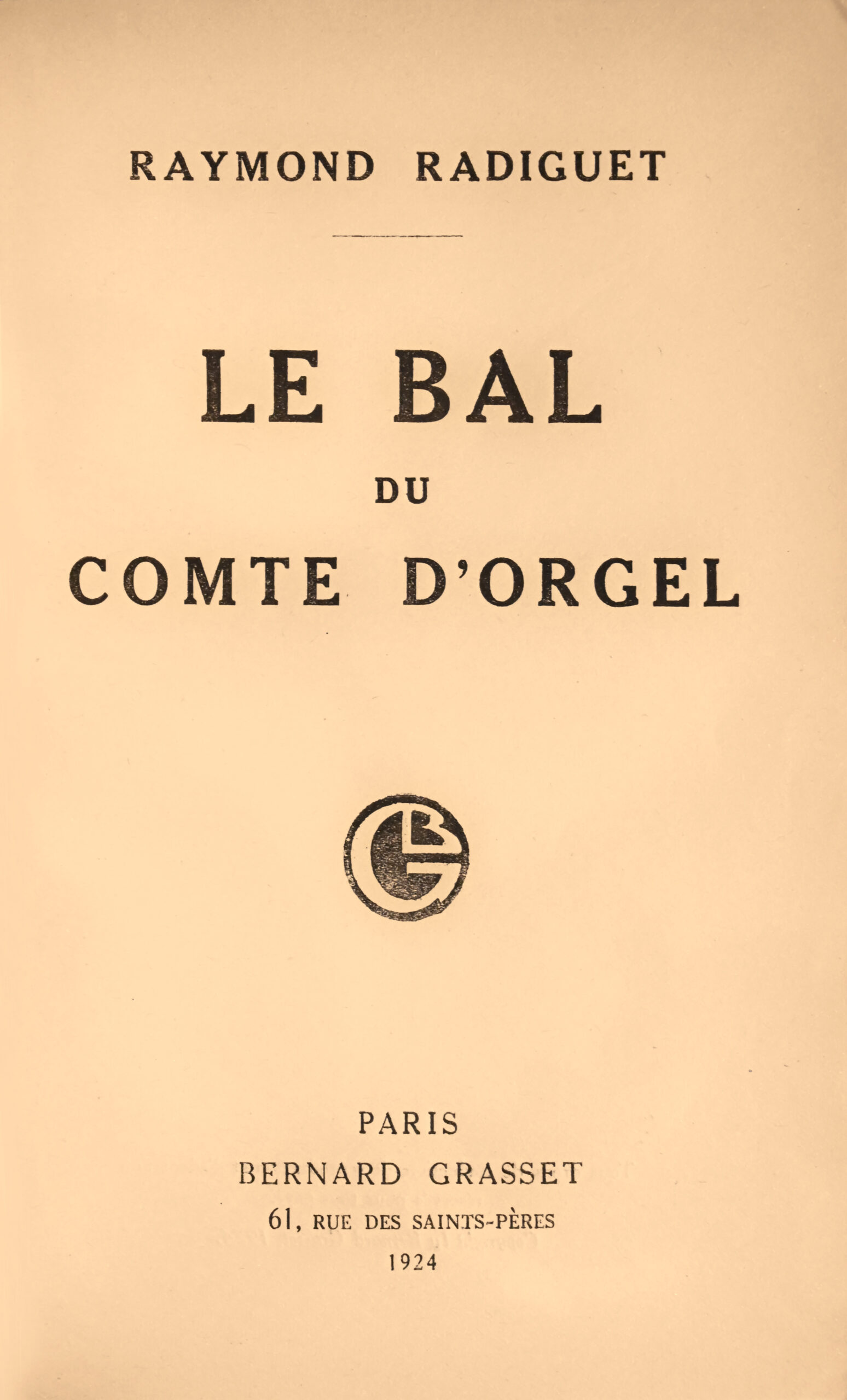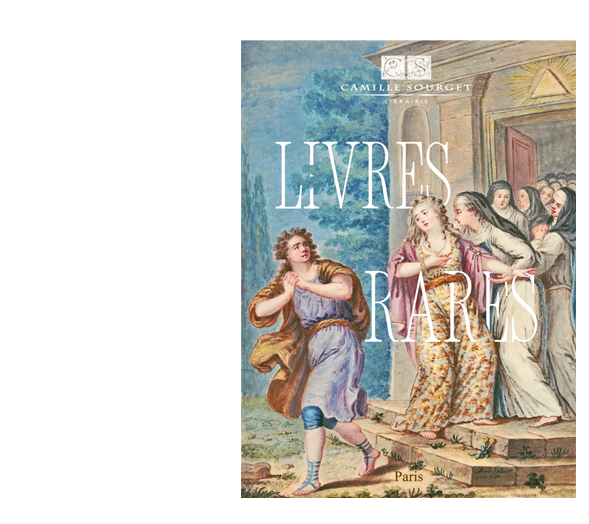Paris, Bernard Grasset, 1924.
12mo of (244) pp. Preserved in the original specially printed water-green wrappers, faded cover’s spine, folder, brown half-shagreen slipcase.
187 x 119 mm.
Very rare true first edition, known as “good leaves”, of the young Radiguet’s second and last novel.
Unique edition known as “good leaves” limited to 20 copies for Radiguet’s friends, giving the first state of the novel before the modifications and deletions subsequently applied by the correctors (Cocteau, P. de Lacretelle, R. Behaine, J. Kessel, Grasset).
The wrapper bears this inscription: Epreuve du roman de Raymond Radiguet Le Bal du comte d’Orgel. En l’état exact laissé par l’auteur et avant toutes corrections même typographiques.
Every page shows that the text is very different from the published one, and that there have been many important changes.
Twenty numbered copies were printed from these good sheets.
The number on this copy, which is difficult to read, seems to be no. 4.
Raymond Radiguet submitted the proofs of his second novel to Grasset in October 1923. Judging the text to be complete, the publisher immediately printed proofs before the end of October. Radiguet died suddenly on December 12 without being able to correct them. As a tribute to the late novelist, Grasset nevertheless printed 20 copies before the definitive edition, whose text was heavily modified.
“This second and last book by the young Raymond Radiguet (1903-1923), published a year after his death, marks a milestone in the style of this prodigiously precocious writer. Whereas in “Le Diable au corps” (The Devil in the Body) he had dealt with the theme of an adolescent involved in too great a love affair, with obvious anti-romantic and anti-rhetorical intentions, relying only on the meager enchantments of a meticulous and precise “relation”, here he attempts the novel of pure analysis: a novel, where only the psychology is novelistic, all imaginative effort tending to suggest, not external events, but feelings. As such, the novel, or rather tale, is devoid of plot. François, a quiet, refined young man who lives alone with his mother and is wealthy enough not to need a profession, meets Count Anne d’Orgel by chance one evening at the theater, a picturesque type of aristocrat for whom life consists in scrupulously and wisely observing a series of worldly duties. The excellent old man introduces him to his milieu and his family. There, François meets his new friend’s young wife. A few glances are all it takes for love to blossom between them. However, this love is challenged by the sense of duty and loyalty of these two souls. During a ball, the two protagonists become deeply convinced that their passion, however dominated by fate, will always be sacrificed to duty. In fact, nothing happens, and the drama remains purely internal, which leads to meticulous psychological analysis […]. With this little book, Radiguet has offered a typical model of one of the characteristic trends dominating the contemporary French novel: neo-classicism”. (Dictionnaire des Œuvres, I, 376).
Precious copy preserved in wrappers as issued.



